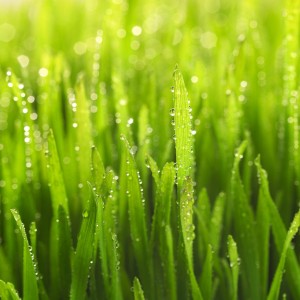
I. A Theological Perspective
II. Scientific and Historical Considerations
III. Conclusion
 Russell A. Butkus and Steven A. Kolmes. Ecology and the Common Good: Sustainability and Catholic Social Teaching.
Russell A. Butkus and Steven A. Kolmes. Ecology and the Common Good: Sustainability and Catholic Social Teaching.
Journal of Catholic Social Thought.
 Russell A. Butkus and Steven A. Kolmes. Sustainability, Catholic Institutions of Higher Learning, and the Natural Step. Journal of Catholic Higher Education.
Russell A. Butkus and Steven A. Kolmes. Sustainability, Catholic Institutions of Higher Learning, and the Natural Step. Journal of Catholic Higher Education.
*Copying of the article for personal, non-commercial use is permitted.
[su_button url=”#” style=”flat” background=”#379c48″ size=”4″]Chapter 8 Resources[/su_button]
Questions for Discussion:
1. Are there examples you know of “green-washing” with products or services being represented as having environmental benefits that they actually lack? If so, should steps be taken to counter this in a free society?
2. How can the U. S. display leadership on global environmental issues without sacrificing its economic vitality?
3. How can we interpret the simultaneous growth of awareness about the environmental crisis and of consumption of natural resources?
4. If hydraulic fracturing to extract natural gas supplies simultaneously imperils groundwater and also provides a fossil fuel resource much cleaner than coal, should it be allowed to continue? If so, should it be altered in some way?
5. What five actions could you take personally to make your life more environmentally sustainable?
6. What actions for sustainability has your school, church or city endorsed and implemented?
Active Learning Exercises:
1. There are several online resources that will let you approximately determine how much of an impact your lifestyle has on the planet. Your assignment is to calculate your ecological footprint using any two of the programs listed below. Print out only the conclusion page for each program using your real lifestyle choices. Play with the programs, and see what would happen if you drove less often, ate less meat, used public transit, etc. Then write a two-page reflection on your ecological footprint, and what you might and might not be able to do to reduce it.
2. Look up the local sustainability initiatives on your campus or in your town/city. These are generally featured in some fashion on college/university/municipal websites, and often appear as press announcements in the local media. For institutions of higher education, you might get some help from the NWF Campus Ecology website or the Association for the Advancement of Sustainability in Higher Education website. Write a two-page reflection on what is being done, and what you think ought to be happening, in order to move the milieu you live in towards a sustainable future.
3. Vegetarian diets consume less environmental resources in general than carnivorous diets, because of the amount of grain used to feed most livestock, the amount of water required in their rearing and processing, and the extensive water pollution and waste disposal problems associated with the operation of concentrated animal feed operations (CAFOs). Although free range meats do exist in the marketplace, they are by far the minority product available. Adopt a vegetarian diet for three days, log what you eat, and record any difficulties you may encounter. Make sure that you visit a restaurant at least once during this period of time. Write a two-page reflection on your brief period of vegetarianism, and turn it in along with your food log. If you are already a vegetarian, try doing the same thing for three days with a vegan diet, which can consume even less resources since dairy cattle, sheep, and goats require animal feed and water in significant quantities. . If you are already a vegan, write a two-page reflection on why you adopted this type of diet.
Recommended Readings:
The Natural Step Story: Seeding a Quiet Revolution, by Karl-Henrik Robert (2002, New Society Publishers, Gabriola Island, British Columbia, Canada)
Alternative Energy for Dummies, by Rik DeGunther (2009, Wiley Publishing, Hoboken, NJ)
Cradle to Cradle, Remaking the Way We Make Things, by William McDonough and Michael Braungart (2002, North Point Press, New York)
Food Fray, Inside the Controversy over Genetically Modified Food, by Lisa H. Weasel (2009, AMACON Books, New York)
